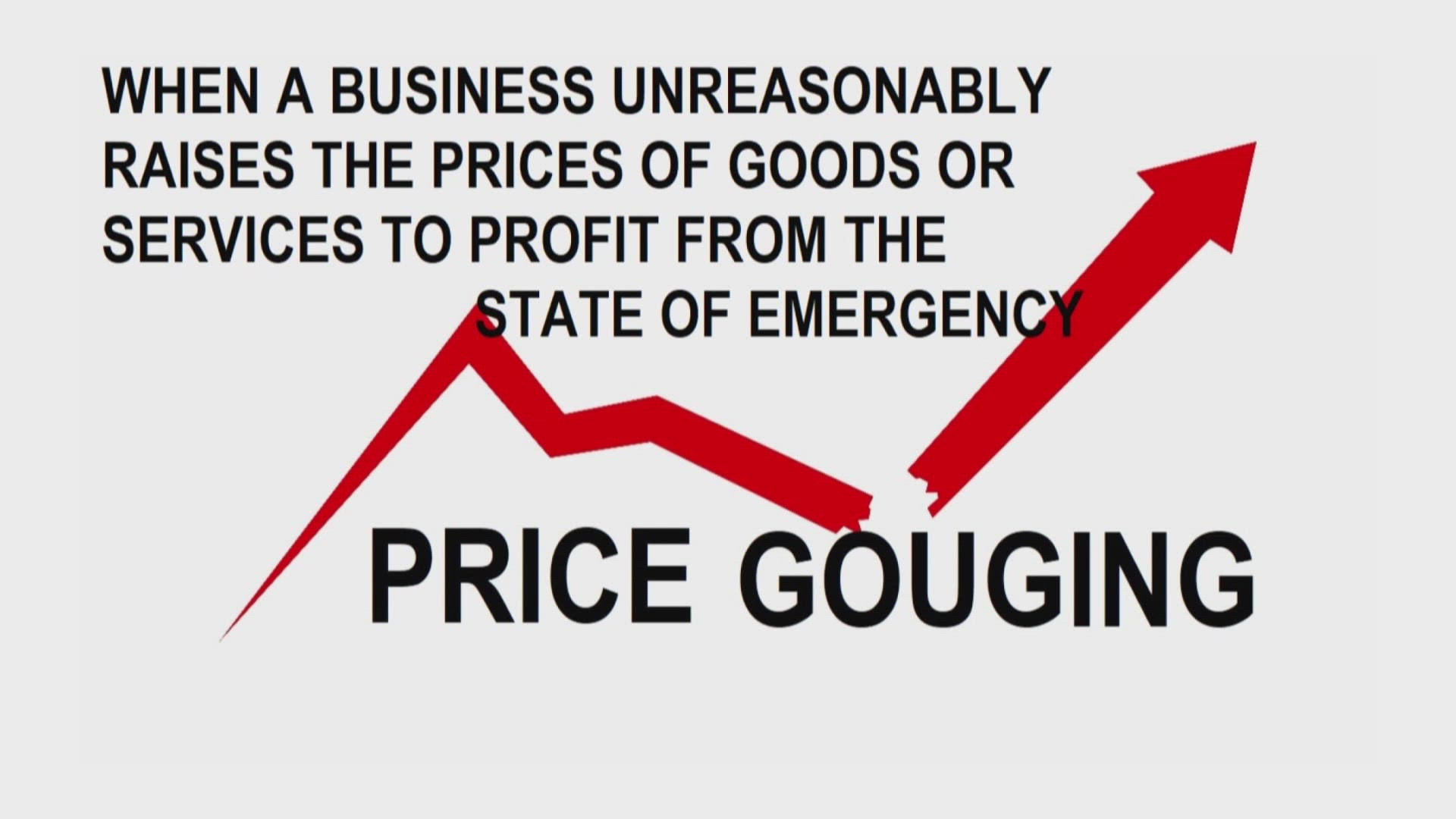GREENSBORO, N.C. — An NC State of Emergency Declaration means consumers are now protected against price gouging. The official definition of price gouging is when a business unreasonably raises the prices of goods or services to profit from the state of emergency. This is key, the word 'unreasonable'. While gouging is easily defined, 'unreasonable' is not.
You can't just say if the business is charging double what it was yesterday it's gouging. Here's why.
"Sometimes people see the price increase and automatically think it's price gouging. It may not be the case, it may be the supplier raised the price. It may be in order to maintain the ice you're giving out you have to bring generators in and fuel in those generators and that also increases your price to do business," said Andy Ellen, President & General Counsel, NC Retail & Merchants Association.
The North Carolina Attorney General will look at two things to determine if it is indeed gouging or not:
*How much did the retailer buy the item for, when, and what price are they selling it now?
*The price history of the item for a certain length of time, usually 60 days.
When it comes to stores selling items at different prices on Monday than on Friday when the storm hits, it could be they're gouging or it could be the supply they got cost them more and therefore cost you more.
For example, the water you bought on Monday might have only been $2, but as of Friday, it's $4. Is it gouging? Maybe. But if between Monday and Friday, the store just bought a new shipment of water and the supplier charged them $3 a bottle, then it's 'reasonable' that the price went up to $4. But the retailer has to prove it, they have to show invoices.
So, if you think price gouging is happening you need to make a complaint with the Attorney General's office. They'll ask for info like the store name and address as well as the product that you're making the complaint about.

